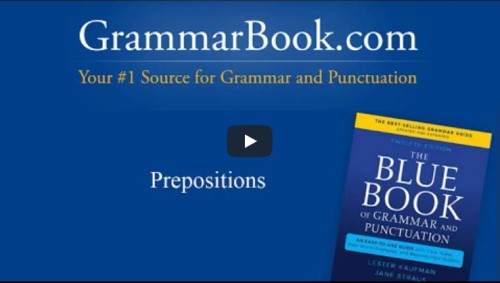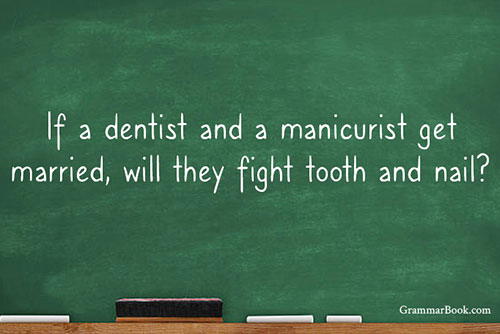|
A conjunction is a part of speech that connects words, phrases, or clauses. The two types of conjunctions are coordinating conjunctions and subordinating conjunctions.
Correlative conjunctions are coordinating conjunctions used in pairs. They connect two items of equal rank and grammatical unit. Some common correlative conjunctions include:
| either…or |
neither…nor |
both…and |
| not only…but also |
as…so |
rather…than |
| not…but |
whether…or |
as many…as |
Examples
We'll go to either the park or the library.
Katy is both smart and funny.
Bob would rather watch grass grow than iron his shirts. |
Correlative conjunctions provide a succinct structure that lets you express relations between items.
How to Use Correlative Conjunctions
Ensuring parallelism is important when using correlative conjunctions. Consider the following sentences:
Tonight's lecture will address both how to manage your time and your schedule.
The referees can neither decide on the right call, nor can they agree on who committed the foul. |
We probably understand what these statements are saying, but they are not concise because they are not parallel.
The first sentence uses a correlative conjunction to pair a phrase (how to manage your time) and a noun (schedule).
The second connects a verb (decide) and a clause (they agree on who committed the foul). The repetition of the auxiliary can further clouds the construction.
Now let's look the same sentences after revising them to be parallel:
Tonight's lecture will address how to manage both your time and your schedule.
The referees can neither decide on the right call nor agree on who committed the foul. |
We have made them clearer by pairing units of equal rank and type: time and schedule (nouns), decide and agree (verbs).
Correlative Conjunctions: Other Grammatical Units
In addition to pairing nouns, verbs, and adjectives, correlative conjunctions can join other grammatical elements.
Adverbs
Archie cuts hair neither properly nor evenly.
Prepositional phrases
The book is not in the bookcase but on the desk.
Independent clauses
Not only did Native Americans invent the kayak and the toboggan, but they also created the sport now known as lacrosse.
Dependent clauses
Both how the moose entered the park and why it traveled so far were questions on the ranger's mind. |
Correlative Conjunctions: Subject-Verb Agreement
Verbs in correlative conjunctions will typically agree with the subject that is closest to the verb unless the correlative conjunction is both…and.
Examples
Neither the dog nor the cat is sleeping right now.
Neither the dog nor the cats are sleeping right now.
Neither the cats nor the dog is sleeping right now.
Both the dog and the cat are sleeping right now.
Both the dog and the cats are sleeping right now.
Both the cats and the dog are sleeping right now. |
If constructions with a singular verb following both a plural and a singular subject sound awkward to you (e.g., neither the cats nor the dog is sleeping right now), you can choose to always place the plural subject nearest to the verb (neither the dog nor the cats are sleeping right now).
Correlative Conjunctions: Punctuation
Correlative conjunctions might sometimes make us feel that we should include punctuation.
Examples
Shane is not aloof, but stoic.
Grace not only paints portraits, but also writes stories. |
Such punctuation for pause and emphasis can be understood as a matter of writer style and preference in formats such as fiction and personal correspondence. In daily formal writing, however, we would not punctuate these constructions:
Shane is not aloof but stoic.
Grace not only paints portraits but also writes stories. |
The exception to this is when the second part of the correlative conjunction introduces an independent clause.
Examples
As Sonia thinks, so will she typically act.
Either we will build a birdhouse, or we will chop wood for the fire.
Not only will the leaves soon change colors, but they also will fall to the ground. (Note that they splits the correlative component but also; in this construction, but is further operating as a coordinating conjunction joining two independent clauses. The separation is needed to maintain parallelism.) |
Related Topics
Simple Words, Fancy Label
Practicing Parallelism
| 




